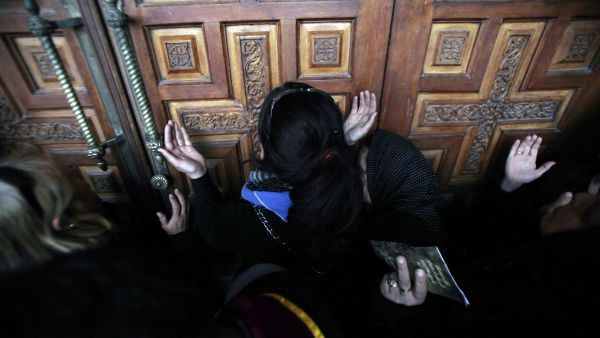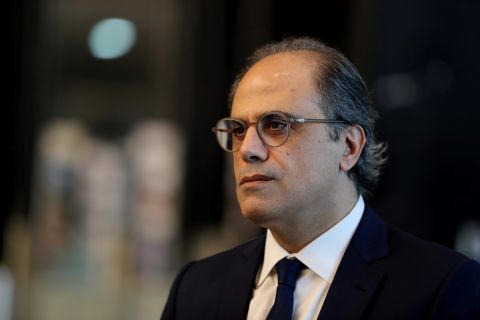The death of Coptic Orthodox Pope Shenouda III has prompted great sadness in the region. Yet, in light of three deaths at his wake due to suffocation, Brett contemplates the importance of human life and how that gets lost in between people's issues and misunderstandings.
"When beggars die, there are no comets seen; The heavens themselves blaze forth the death of princes."
In Shakespeare’s Julius Caesar, the Roman ruler’s wife is in fear of his demise. But in declaring the above warning, Calpurnia has placed the life of Caesar as cosmically more important than any impoverished vagabond. Is she wrong in doing this? She’s certainly not alone. Many of us lowly peasants idolize certain public figures and allow the value of their lives to eclipse even our own.
This concept of ranking human life, while prevalent, is not how things should be. A purer atmosphere would give equal star power to any human being. All of us are galactic, cast from the same mold and formed from the same clay. This is the lens through which we should peer at our galaxy. Unfortunately, it seems things have become out of focus.
Sadly, the Coptic Orthodox Pope Shenouda III passed away in the past week. As we hear about his legacy, truly he was a man near to God. But in the mourning of his passing, mobs of grievers seemed to focus on his death as more worthy than their own lives. Three people died at the Pope's wake by suffocation from the density of crowds . How could this be? Did the funeral masses ignore the living for the dead? From the cosmos, we can hear the late Pope cry, “The heavens blaze forth from the death of these Egyptians”.
No one life has more inherent value than any other. Recently a US solider did the unthinkable and turned his gun on the very people he was called to protect in Afghanistan. But why is he getting all the press? Why do we even know his name rather than the innocents he killed? Just because they were not born in the U.S, it should not make their stars shine any dimmer. Our hearts ache for the bereaved and our lens needs to be cleaned.
Often we see unfair priority given to men’s lives over women’s. In a heart wrenching story from Morocco, young Amina al-Filali was forced to wed the man who raped her. Through all the coverage of this horrendous situation, little is spent on the man who violated, then married, a defenseless 16 year old shooting star. Apparently a Moroccan judge ordered her to marry this black hole in order to avoid more shame.
The level of cowardice in her community by not defending this young lady’s human worth is astronomical. Since when are perverted men more precious than teenage girls? Where is the justice for Amina?
In a desperate attempt to preserve her own dignity and defend herself from her rapist husband’s daily abuse, Amina killed herself. It seems she gazed at her universe and saw that even her own family would not defend her worth. By ending her own life, Amina laid bare the myth that one life is intrinsically more important than another.
In response to his wife’s flattery and fear, Caesar uttered this reply, which serves as a requiem for the victims in Afghanistan, in Egypt and, dear Amina in Morocco:
“Cowards die many times before their deaths; The valiant never taste of death but once. ”
This verse offers only poetic justice for all the marginalized and it offers no real solutions. We need to protect life, all lives. Let us cage any warped ideology, one that takes the ideals of honor, patriotism or reverence and relegates them above human life, and ship it to the furthest planet. In so doing, ‘we see that death, a necessary end, will only come when it has to come’(Julius Caesar Act 2 Scene 2), nuanced for humanity.
By Brett Weer









